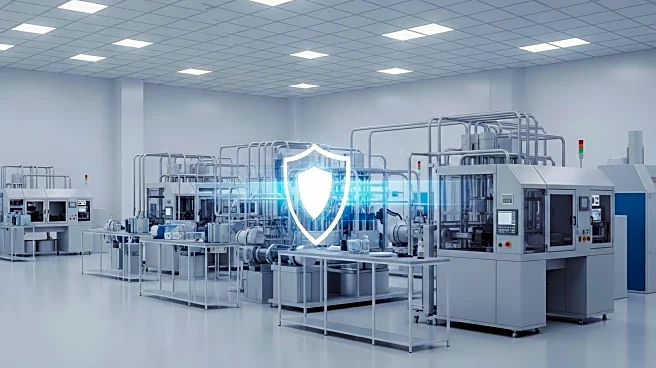What's Happening?
Tomas J. Philipson, an economist at the University of Chicago, suggests that President Trump should implement targeted tariffs on Chinese pharmaceutical imports to safeguard the U.S. drug supply chain. Philipson argues that China's significant role in supplying generic antibiotics and active pharmaceutical ingredients poses a national security risk, especially during global demand surges like the COVID-19 pandemic. He proposes using Pigouvian tariffs to increase costs for sourcing drugs from China, thereby encouraging pharmaceutical production in the U.S. or allied nations. Philipson warns against blanket tariffs on imports from allies, which could undermine economic and national security by pushing them towards China.
Why It's Important?
Philipson's proposal highlights the strategic importance of securing the U.S. drug supply chain amid geopolitical tensions with China. By imposing targeted tariffs, the U.S. could reduce dependency on Chinese pharmaceutical imports, enhancing national security and economic independence. However, untargeted tariffs could disrupt supply chains and increase costs for American patients, potentially hindering innovation and investment in domestic drug production. The approach aims to balance national security with economic competitiveness, ensuring that the U.S. maintains its leadership in the pharmaceutical industry.
Beyond the Headlines
Philipson's strategy underscores the broader implications of trade policy on healthcare and innovation. The proposal reflects a shift towards economic nationalism, prioritizing domestic production and security over global supply chain integration. It also raises ethical considerations about the impact of tariffs on drug accessibility and affordability for American patients. The approach could influence future policy decisions on trade and healthcare, as the U.S. navigates its adversarial relationship with China while fostering alliances with other nations.









